A child is shown on the black and white photograph. It is screaming for fear, or maybe for anger or helplessness… If only one could capture the scream, the emotion, the moment… If only we could capture and keep all other similar moments (to warn, to draw the conclusions from). If we could encapsulate that scream in a can, a bottle or shout everything out into an inflated balloon, which grows and expands with every exhaled breath and sound and then sails high in the space. With every breath and moment its sides become thinner and thinner, more fragile, less reliable like the slippery ground underthe feet, like the lack of footing. No place – one’s own place. No home, no a part of oneself.
Don’t be afraid child, you will find another place, there will be another home… the Earth is huge and you are small. You will forget…
You are neither the first nor the last… The wars have been waged from the beginning of mankind: people escaped through the windows and still will be running under gunfire.
– But why so brutally –
No means to live and no hope for the better, non-acceptance of social and economic situation, repressions…
– But why with such commitment –
Family conflicts, disagreement, dispute over the land
…Quite frequent…
Yes, we already read about this in Homer’s works – and it would seem, that “nihil novi”, we struggled through those stories in school books or we heard them from our grandparents. But those borrowed experiences don’t work when we are directly affected. Hmm, everyone learns from their own experience – we will not believe until we touch it ourselves.
Dresden, the Polish so called “regained” territories, Libya, Syria, Ukraine – this has been happening recently or now, before our eyes, and we are the first-hand witnesses. Unfortunately, hundreds of thousands of people are personally affected by it – it is their story, their life. But we are also indirectly affected. The people looking for or forced to find a new “home” are our neighbours, and sometimes we become one of them. Everything can happen and life can play tricks on us, it can offer unexpected turns of events. Resettlements and the issue of illegal refugees officially deported are extremely delicate matters, which lately have been widely discussed and have risen the emotional reactions from all sides of the conflict. On one side the great theories are being created, groups which sharply oppose refugees and immigrants are being organised while on the other side there are organisations which try to fight on their behalf. You are either “for” or “against” – it is politics, deals and interests. Lofty speeches and big words. And what about these people’s life? What about a single human being considered as an individual not a part of a crowd?
In the seemingly bucolic post capitalist era the “to be or not to be” question is no longer pertinent. “I am” is a motto of our times (right next to “I have”). I am here and now. I tell it to the world, I mark my presence in every possible way, I announce my every step, my physical and mental states. I am and I will be, because the Internet does not forget.
However, if we look deeper, if we stop focusing on ourselves, our ego and our beautiful facebook profiles, maybe we will see, that not far away from us the people struggle every day to „BE”…
The Shakespearian questions sounds loud and dramatic.
“To be or not to be?”
To look for a better life, or to settle for the current situation? To stay or to go? To let go or to stop? To let them in or to chase them out? Are we brave enough to change? Are we able to sacrifice? What will remain in us?
These are the questions!
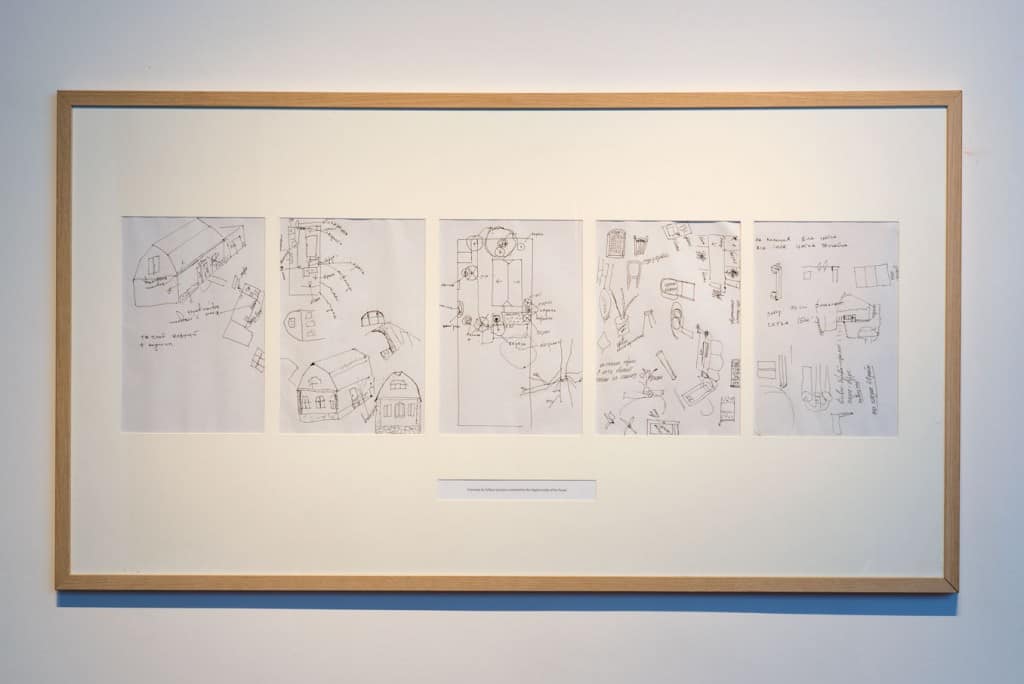
The Open Group, exhibition view, Dispossession, Venice 2015, photo Małgorzata Kujda

The Open Group, exhibition view, Dispossession, Venice 2015, photo Małgorzata Kujda
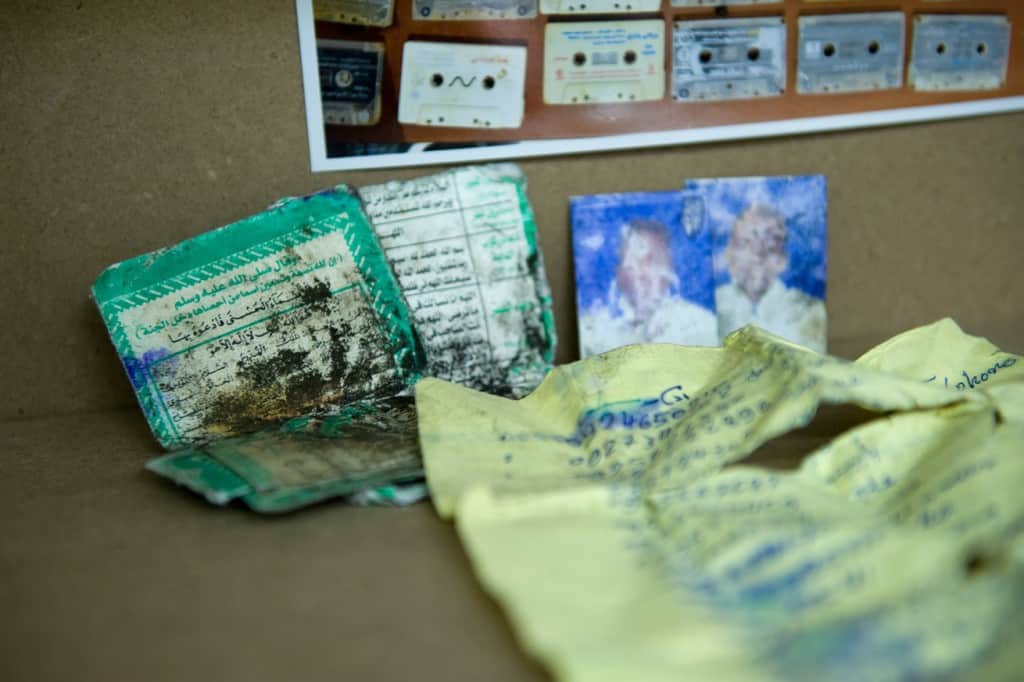
Thomas Kilpper, exhibition view, Dispossession, Venice 2015, photo Małgorzata Kujda
The memory of home remains forever, the location of bed, the kitchen and the garden bench…; someone’s smile, gesture, a person who leaves a deep mark in us; a seemingly banal memory form an ordinary day at school…70 years ago…a family photograph in the pocket, a torch, a banknote or a watch – this one object treated by the owner as a valuable heirloom or even a treasure. For others however, it is a piece of paper, a piece of plastic, worthless trash. And so, on the South of Italy, by the seafront, on the beach or in town, by the football pitch, there are piles and piles of those „unneeded” objects confiscated from the refugees – like a landfills of memories.
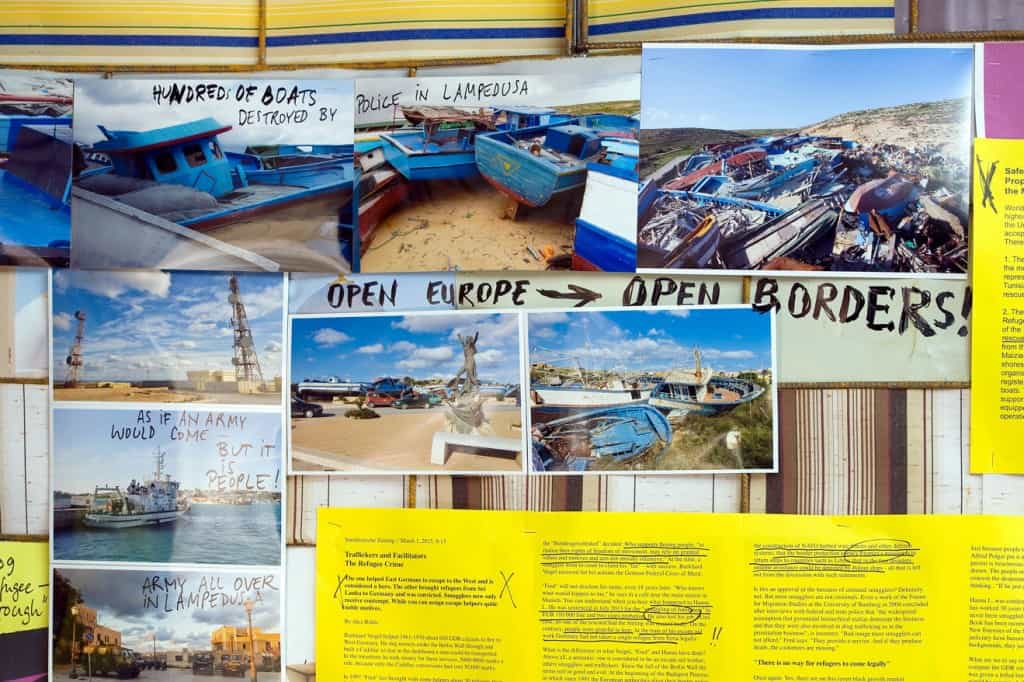
Thomas Kilpper, exhibition view, Dispossession, Venice 2015, photo Małgorzata Kujda

Thomas Kilpper, exhibition view, Dispossession, Venice 2015, photo Małgorzata Kujda

Thomas Kilpper, exhibition view, Dispossession, Venice 2015, photo Małgorzata Kujda
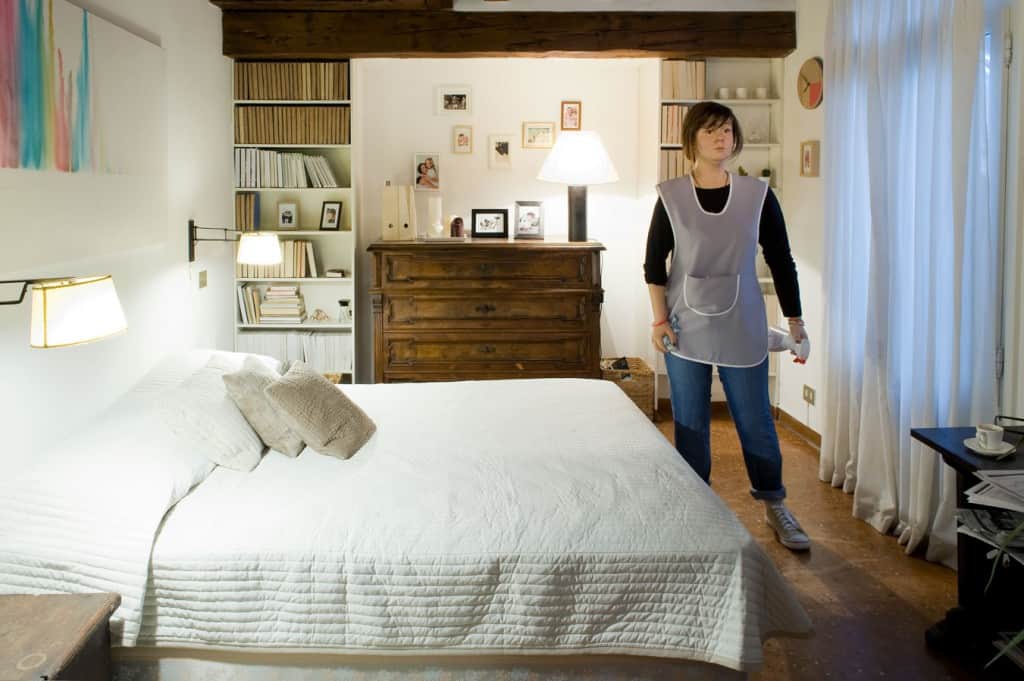
Szymon Kobylarz, exhibition view, Dispossession, Venice 2015, photo Małgorzata Kujda
Ironically the one who is not sent back to the hell from which had fled can consider himself lucky; the one who will be employed, invited…to work without contracts, on the black market…Because it is easier than helping them assimilate with the new environment. Those who were deprived of homes or left them of their own will, now build homes for their new rulers, they clean them, care for them; books evenly arranged on shelves, pictures on walls, the bed made – as it should be; objects placed a bit artificially, repeatable, like in a magazine. They work day after day, without feeling, without emotions – because it is not theirs, it is not permanent. These are just means to reach the goal. Somewhere there is a new house, which they will decorate themselves. In a week or two, just around the corner…The car is ready. It is equipped with everything necessary: a blanket. a pot, a heater, some books, the same watch, documents. They get in the car and they are gone. They will find a new home… probably.

Szymon Kobylarz, exhibition view, Dispossession, Venice 2015, photo Małgorzata Kujda

Szymon Kobylarz, exhibition view, Dispossession, Venice 2015, photo Małgorzata Kujda

Manaf Halbouni, exhibition view, Dispossession, Venice 2015, photo Małgorzata Kujda
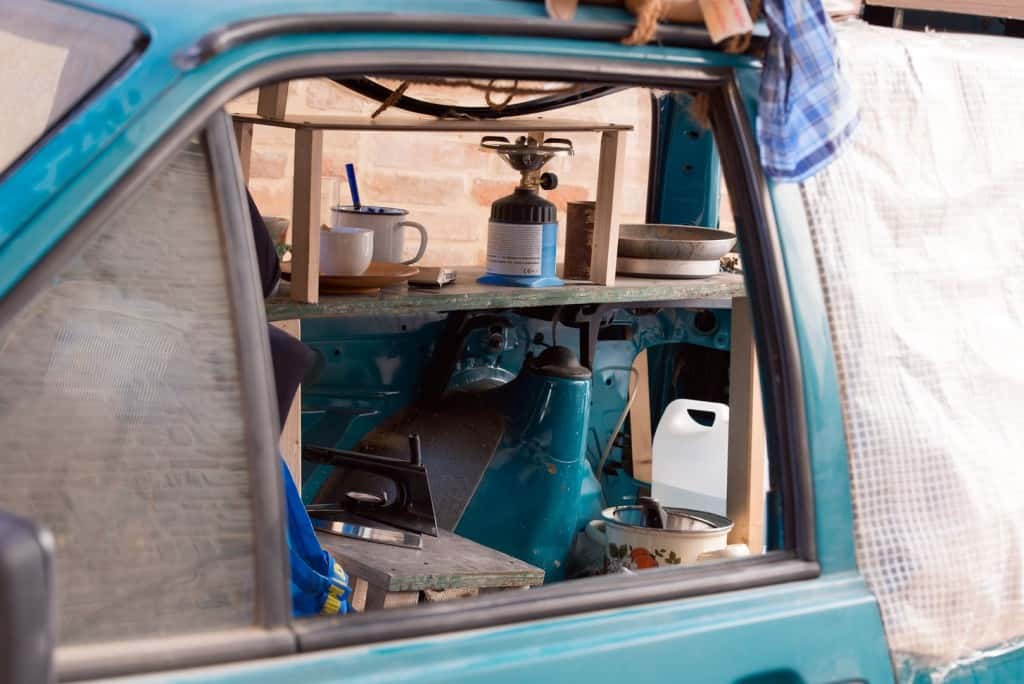
Manaf Halbouni, exhibition view, Dispossession, Venice 2015, photo Małgorzata Kujda
Being from here and from there and simultaneously not being from any of these places, they are from everywhere and nowhere.
Each of us can be one of them!
But do those who think they have their place, really do have it? Is it really theirs? The doors in old buildings have set the boarders of privacy for many inhabitants. Many hands opened them. There were people before them and there will be people after them. They also considered or will consider this place as their own…hopefully those claims will not overlap in time…The division into „mine” and „yours” has been problematic since forever (to put it mildly).
It is terrible to think how many people cannot really say where their home is.
Of course there is usually the family home… But this is a communal place.
Family members come from different places and they move constantly – they have done so for generations – running away from approaching war, running under gunfire, moving in search of better land or better accommodation, relatives scattered around the world – most unknown…Most people can sign their name underneath this story.
And where is „my” home. What is a home to me? Hard to say…
We live in constant search, tension, unease. The whole groups of people are on the road and they travel around the world. They are anonymous from the outside, as an unified mass without faces, forever moving forward. They are always on the run.
I just remembered: my friend keeps telling me, that rest is something he will get in his grave…
Or maybe there will be a place on the Earth for everyone, and tightness of land is just a result of human ambitions and attachment to the own property.
Nature is more generous … It will find a home for us.
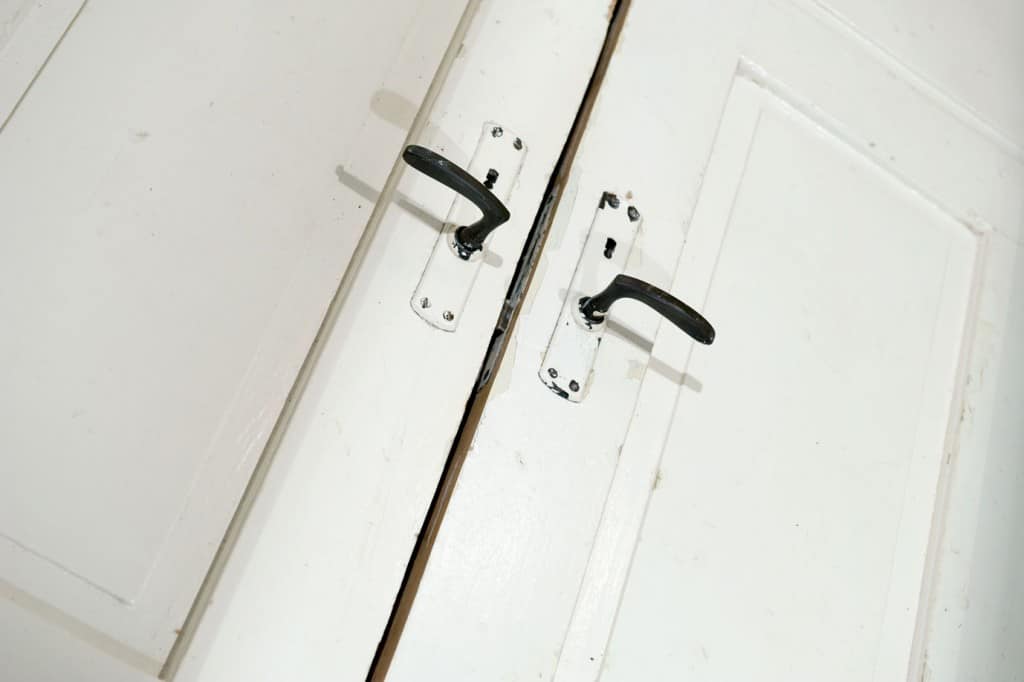
Dorota Nieznalska, exhibition view, Dispossession, Venice 2015, photo Małgorzata Kujda
Dispossession
8 May – 22 November 2015
15-17 Palazzo Donà
Campo San Polo, 2177 Venezia
artists: Manaf Halbouni, Susanne Keichel, Thomas Kilpper, Szymon Kobylarz, Michael Merkel,
Dorota Nieznalska, Tomasz Opania, the Open Group, Andriy Sahaydakovskyy, Oksana Zabuzhko
curated by: Michał Bieniek, Małgorzata Miśniakiewicz
organised by: European Capital of Culture Wroclaw 2016
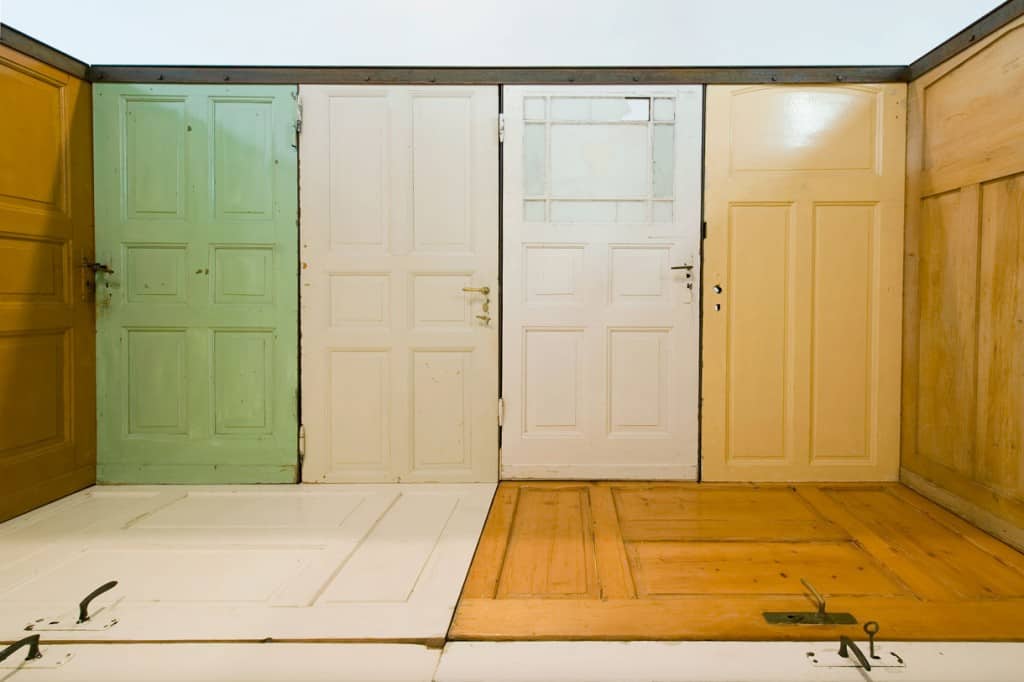
Dorota Nieznalska, exhibition view, Dispossession, Venice 2015, photo Małgorzata Kujda
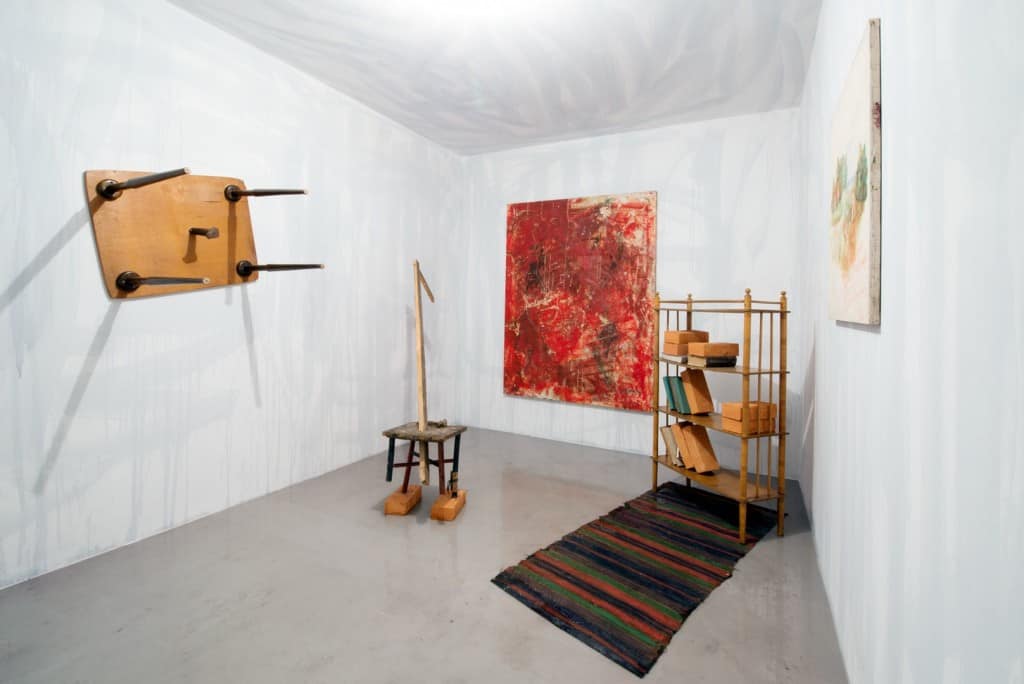
Andriy Sahaydakovsky, exhibition view, Dispossession, Venice 2015, photo Małgorzata Kujda
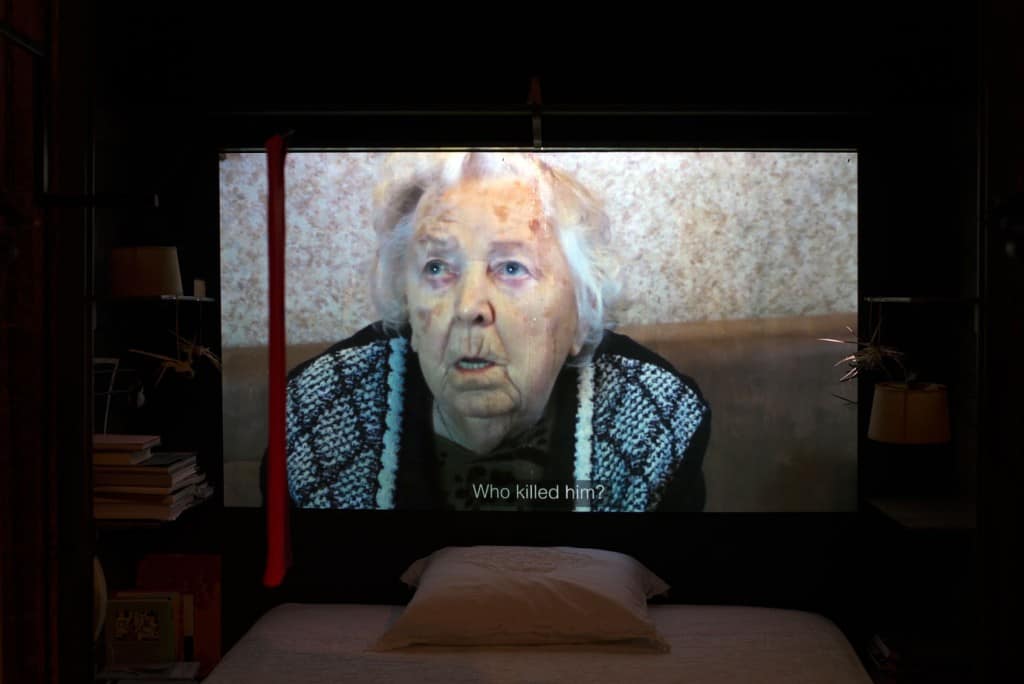
Tomasz Opania, exhibition view, Dispossession, Venice 2015, photo Małgorzata Kujda

Tomasz Opania, exhibition view, Dispossession, Venice 2015, photo Małgorzata Kujda

Susanne Keichel, exhibition view, Dispossession, Venice 2015, photo Małgorzata Kujda

Susanne Keichel, exhibition view, Dispossession, Venice 2015, photo Małgorzata Kujda

Thomas Kilpper, exhibition view, Dispossession, Venice 2015, photo Małgorzata Kujda
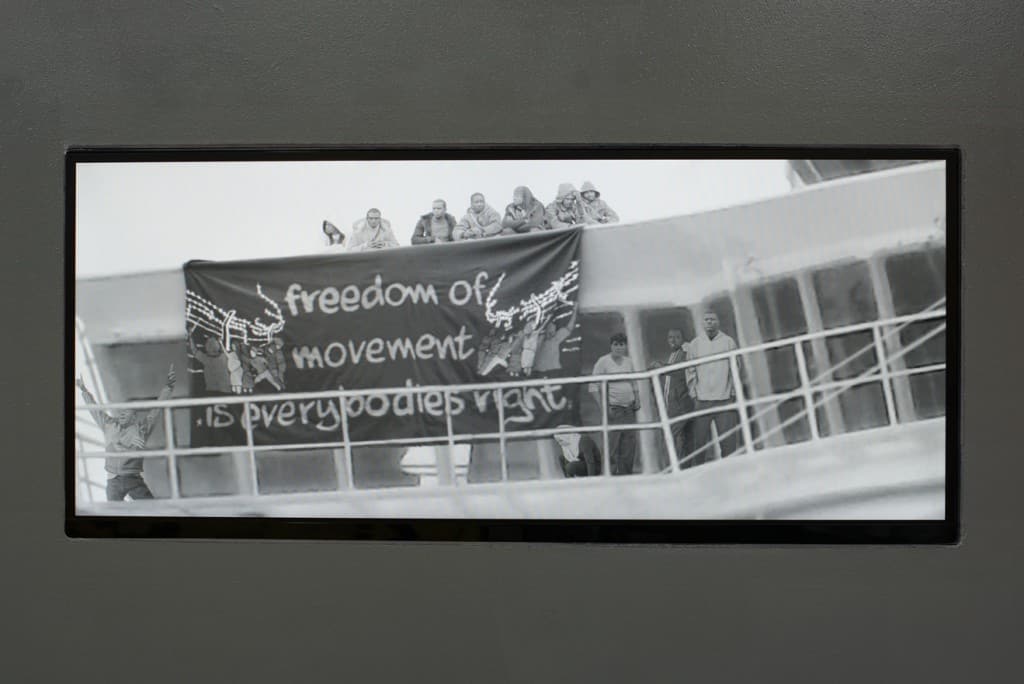
Thomas Kilpper, exhibition view, Dispossession, Venice 2015, photo Małgorzata Kujda







